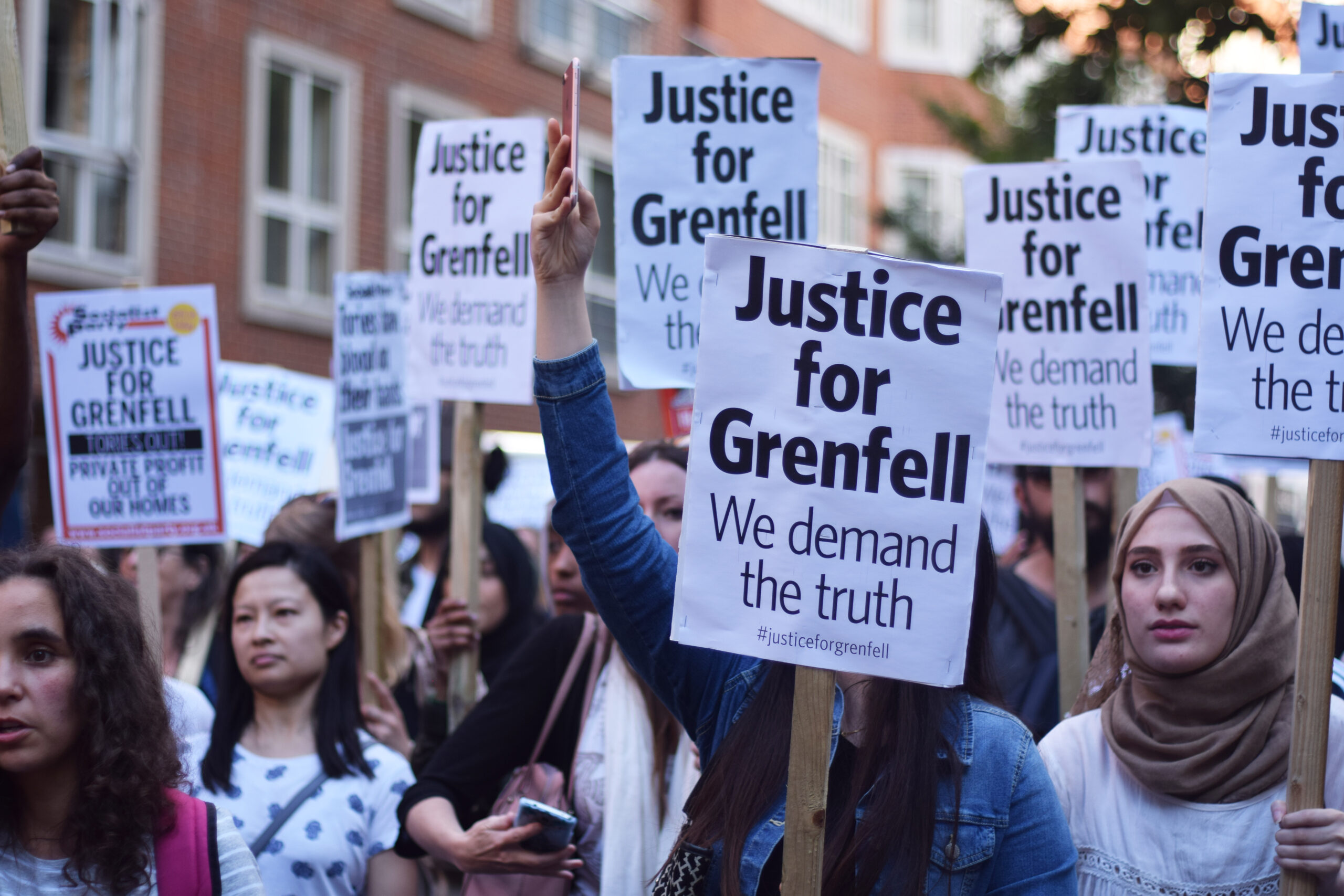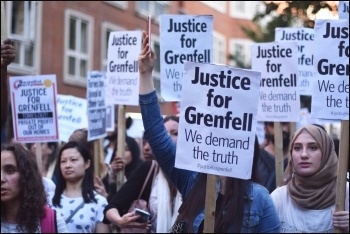Do you have something to say?
Send your news, views and criticism in not more than 150 words to Socialist Postbox, PO Box 24697, London E11 1YD, phone 020 8988 8771 or email [email protected].
We reserve the right to shorten and edit letters. Don’t forget to give your name, address and phone number. Confidentiality will be respected if requested.
Views of letter writers do not necessarily match those of the Socialist Party.
Scrap the cap
The old and favoured method of the ruling class, divide and rule, is once again on full display over the question of the public sector pay cap.
The ex-chancellor of the exchequer under Thatcher, Lord Lamont, claims it’s fair because “public sector pay is on average higher than in the private sector.”
This is the same method they trotted out in the general election when they tried to say that the older generation was better off than the younger generation to defend their vicious ‘dementia tax’ and winter fuel allowance cuts.
It is a handy way of trying to distract the workers from the real inequalities in society: between the super-rich and the rest of us.
The real question for us is: are our living standards worse or better as a result of government policies – and what are we going to do about it? Or rather, what are the trade union leaders going to do about it. We see the inflation rate taking off once again.
By diverting the pay debate into ‘private versus public’ the Tories hope to distract us from the real problems that all workers face, irrespective of occupation or age.
Bill Mullins, Bermondsey, south London
On guard
On a recent journey into London I was horrified to see the doors of the tube close on an elderly woman’s hand. Her hand and handbag were inside the train and she was outside.
Immediately two young men and I ran up to help. We managed to prise the doors apart with some effort, and when they fully opened she was lying on her back on the platform as the doors releasing affected her balance. She must have been terrified.
When I reached my destination I told my friend what had happened. She related an incident that happened to her the previous week.
As she was exiting a train she was pushed by a woman trying to get on and ended up with her torso inside and her legs sticking out. She too was terrified the train would leave with her legs outside.
These are just two of what must be many incidents that happen daily. They illustrate how important it is to have guards on trains and platforms to ensure everyone has boarded safely.
The RMT union is currently in dispute with Southern Rail and other regional train operators over this very issue.
Many of the platforms Southern uses are curved which means the whole length cannot be monitored by the driver. Often visibility is poor in wet conditions. Many trains are 12 coaches long, adding to the impossibility of the driver seeing the whole length.
Barbara Clare, Stevenage
Grenfell Tower
The Worcestershire Unite union community branch coach made its way to London on 1 July to join the tens of thousands marching against the Tories’ murderous austerity.
The weather was perfect and the protesters all united in anger against the recent horrific events at Grenfell due to cutting corners and penny pinching to line the pockets of the wealthy.
We were also united on saving our NHS. Worcester NHS is suffering from overstretched resources and underpaid and overworked staff.
The memory that I will carry though, after a magnificent demo, was on the coach home. Driving through Kensington and seeing the gigantic blackened shell of Grenfell Tower, eerily menacing in the summer evening sun.
Calvin Fowler, Worcester
Truth About Zane
Staines Socialist Party members supported the ‘Truth About Zane’ contingent on the 1 July ‘Tories out’ demo, campaigning for justice following the seven-year-old’s death from poisonous fumes in the 2014 Surrey floods (read more at truthaboutzane.com).
We all travelled up together by train from Staines with Zane’s mum and our new banner. We sold 12 copies of the Socialist to campaigners on the train.
The fight for justice goes on.
Paul Couchman, Staines
Homeland hooey
CIA spy drama Homeland is compelling watching. Although I love the show, I don’t like the message it puts out.
It’s a programme influenced by the ‘war on terror’. It reinforces the establishment’s point of view. However, the world has changed since the first season aired in 2011.
Trump is president, while Bernie Sanders ran a fantastic campaign. Disdain for the war in Iraq is high, and support for foreign wars extremely low. Homeland makers felt compelled to reflect the changed mood in the latest season of the show.
Elizabeth Keane is elected president on an anti-war ticket. But the programme makers fail to understand what a political situation like that would look like.
There were four protests featured in season six, all of them organised by right-wing forces. I think the opposite would be happening. Bernie Sanders mobilised bigger rallies than Clinton and Trump combined.
Obama betrayed hopes by continuing Middle East interventions. Before then, when he was seen as different, 250,000 came to hear him speak on the night of his election.
The ending of the final episode was very disappointing, awkwardly equating left-wing alternative ideas with Trump and totalitarianism.
Ian Pattison, Leytonstone, east London
Sickening statistics
There’s so much talk about ‘fake news’ and ‘alternative facts’, surely we can trust the Office for National Statistics to get it right?
Despite workplace stress, a fall in real income, worsening environmental conditions, a housing crisis, cuts, poor diet, job insecurity, sanctions and the myriad of factors affecting our health – the stats show workers must be getting healthier!
About 137 million working days – 4.3 days per worker – were lost to sickness or injury in 2016, compared to 132 million in 2013. That was the lowest level since 1993 when the study began and absence due to sickness was at its highest – 7.2 days per worker.
There’s been a fairly steady decline since 2003, especially during the economic downturn – surprised?
Minor illnesses like coughs and colds remain the most common given excuse at 25%, followed by musculoskeletal problems like back or neck pain. “Other” stated causes – stress, depression, anxiety and serious physical conditions – make up 12%.
Women, older workers, people with long-term health problems, smokers, health workers and employees in firms with more than 500 staff were most likely to be off sick.
Over the last 20 years the greatest reduction in sickness absence rates was among workers with long-term health problems, workers aged 50 to 64, and public sector workers.
It’s all a matter of interpretation. You might argue health is improving. Or you could conclude that in these groups people are scared to stay home, however ill they may feel.
Workers with chronic health problems, older workers and those in precarious jobs or smaller companies without union organisation simply soldier on.
Perhaps this explains why agency workers frequently turn up at work – including hospitals – with heavy colds, potentially infecting others. And why meals-on-wheels staff with stomach bugs are told not to work in the kitchen, but sent to deliver meals to the elderly and vulnerable.
Sometimes looking beyond the data reveals the truth behind the stats.
Sue Powell, Gloucester
Poland and Trotsky
I found the letter by Agnieszka Ford in issue 938 of the Socialist, ‘Trotsky and Poland’, quite informative about Adam Michnik and the group around Henry Szlajfer – that they were reading and discussing the ideas of Leon Trotsky in the 1960s in the Warsaw underground.
My wife grew up in the ’60s in Wroclaw. She recalls that in the general population Trotsky’s ideas and even his name were not familiar – to her, people from her generation or even the generation of her parents.
I have visited Poland countless times visiting relatives and friends. I have had many discussions with them. I mainly listened.
The main point which came was that for their generation “socialism” is a dirty word. They did not see the regime as Stalinism, but genuine socialism. They saw Poland as “socialist” as they were taught that in school.
I said to my wife: how could the workers of Gdansk cheer Thatcher when she visited in the late 1980s? She replied: “You have to understand – for us the ‘socialist’ system we were living under was terrible. There was great hardship. People wanted something different, a change, a better system, and that to them was capitalism.”
Having listened to what many people who lived through that period have said to me, I can understand why they moved to embrace capitalism. At the time there was a capitalist boom in the West. There were no forces of Trotskyism on the ground who were active in workers’ organisations at that time.
One of my wife’s friends said to me two years ago: “This is a new system for us and we are still learning.”
Having said all that, people did tell me there were some positive things in the old system. Education, healthcare and housing were all better. They told me they are very proud of their country, their independence and history – but that does not make them nationalists, they have said.
Things are changing and there are encouraging signs.
In the last general election, ‘Razem’ – a new left party formed in 2015 not long before the election, which has some radical demands including expanding workers’ rights and opposing privatisation – received 3.6% of the vote. This is, however, below the 5% threshold to gain seats in parliament.
Poland is becoming more polarised now than ever due to the actions of the present right-wing government. There will be social upheaval, of that there is no doubt.
I know that the genuine forces of Trotskyism in Poland today are small. But with the events that will unfold there in the future, I am confident these forces will grow and gain influence.










